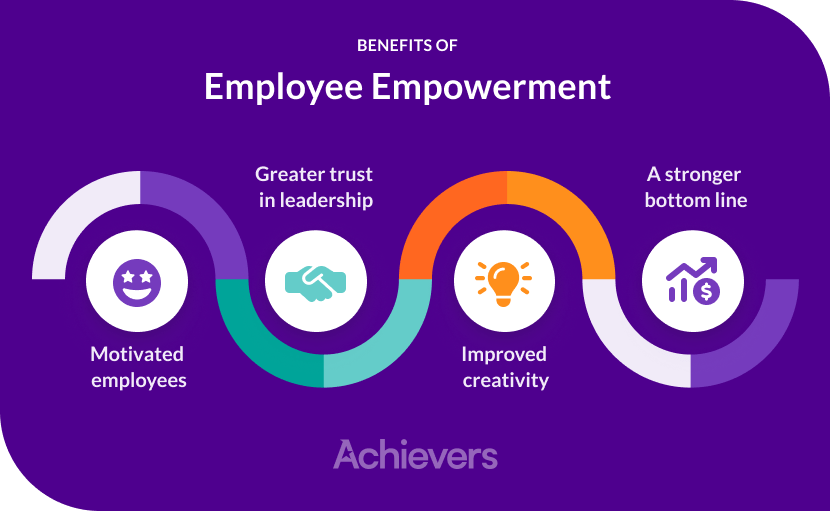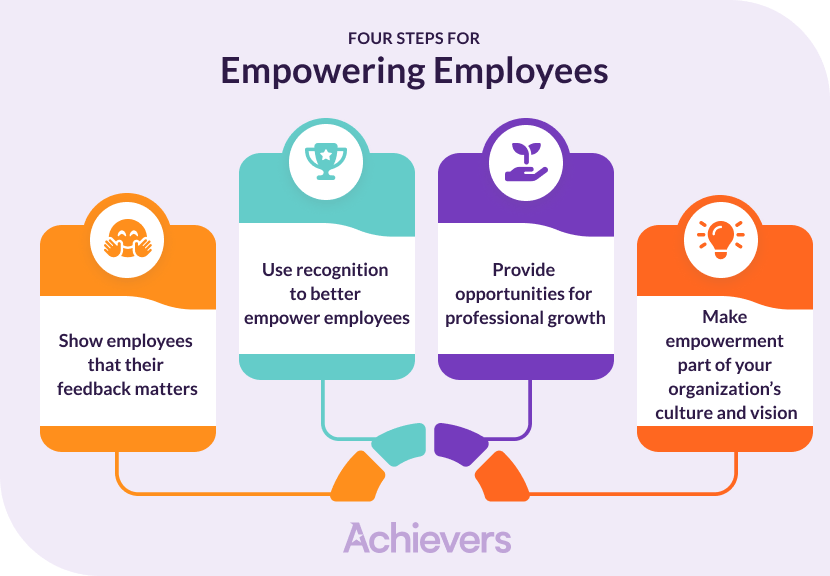Unlocking the untapped potential within: Discover the ultimate secrets to empowering your employees and empowering their self-growth.

Table of Contents
- Create a Supportive Environment
- Set Clear Performance Goals
- Offer Personal Development Opportunities
- Regular Feedback and Performance Reviews
- Recognition and Rewards for Development Efforts
- Support Work-Life Balance
- Lead by Example
Introduction:
Any organisation’s success depends on its employees’ growth and development. When employees are empowered to take charge of their self-development, they become more engaged, motivated, and productive. In this ultimate guide, we will explore practical strategies to foster self-development among your employees, ultimately creating a culture of continuous learning and growth.
Create a Supportive Environment
One of the first steps in fostering self-development is to create a supportive environment that encourages employees to take ownership of their growth. This can be achieved by:
- Encouraging a culture of continuous learning and growth: Emphasize the value of personal development and create an open and receptive environment where employees feel comfortable pursuing their learning journeys.
- Providing resources: Offer a wide range of resources such as books, online courses, and workshops that employees can access to enhance their skills and knowledge.
- Establishing mentorship or coaching programs: Pair employees with mentors or coaches who can provide guidance, advice, and support on their professional development.
Set Clear Performance Goals
Setting clear performance goals is crucial for fostering self-development among employees. Here’s how you can incorporate goal-setting into the development process:
- Discuss the importance of setting OKRs: Ensure that goals are Specific, Measurable, Achievable, Relevant, and Time-bound. This clarity will help employees understand what they need to achieve and how they can work towards their personal development.
- Involve employees in the goal-setting process: Encourage employees to actively participate in setting their development goals. This involvement will give them a sense of ownership and commitment to achieving them.
- Regularly revisit and revise goals: Development goals should not be set in stone. As employees grow and progress, it is essential to review and revise these goals to align them with their evolving aspirations and organizational needs.
Offer Personal Development Opportunities
Providing ample opportunities for personal development is vital in fostering self-development among your employees. Consider the following strategies:

- Support attendance at conferences, seminars, and industry events: Encourage employees to attend relevant events outside of the workplace where they can learn from industry experts and network with peers.
- Encourage participation in cross-functional projects or assignments: Employees can work on projects that expand their skills and knowledge by collaborating with individuals from different departments or teams.
- Provide skills-building opportunities through on-the-job training or shadowing: Allow employees to acquire new skills by offering on-the-job training or shadowing experiences alongside experienced colleagues.
Regular Feedback and Performance Reviews
Regular feedback and performance reviews play a significant role in employee self-development. Here’s how you can integrate this into your organizational culture:
- Emphasize the importance of ongoing feedback for growth: Encourage managers and supervisors to foster a regular feedback culture where constructive criticism and positive reinforcement are provided to help employees identify areas for improvement and development.
- Implement regular performance management processes to track progress: Establish a system to monitor and evaluate employees’ progress towards their development goals. This will allow employees to reflect upon their achievements and areas needing further attention.
- Provide constructive feedback: When providing feedback, focus on specific actions or behaviours that employees can work on to enhance their abilities. Encourage a growth mindset and provide support and resources to facilitate improvement.
Recognition and Rewards for Development Efforts
Incentivizing self-development efforts can be a powerful way to foster a culture of continuous improvement. Consider these strategies:

- Celebrate achievements and milestones in personal development: Recognize and celebrate the progress and accomplishments made by employees on their self-development journey. This recognition can be in public acknowledgement, rewards, or simple gestures of appreciation.
- Recognize and reward employees who actively pursue self-development: Create a system that acknowledges and rewards employees who consistently invest in their personal growth and development. This recognition can include opportunities for advancement, special projects, or increased responsibility.
- Incorporate personal development into performance evaluations and promotions: Integrate personal development efforts into the performance evaluation process, ensuring employees’ commitment to self-development is considered in the organisation’s promotions and career advancement opportunities.
Support Work-Life Balance
To foster self-development effectively, it is crucial to support work-life balance. Consider these strategies:
- Encourage a healthy work-life balance to foster personal growth: Provide employees with flexible work schedules or remote work options that allow them to balance their professional and personal lives.
- Promote self-care activities, such as exercise and mindfulness practices: Encourage employees to prioritize self-care activities that enhance their well-being and contribute to their personal development.
- Offer flexible working arrangements to accommodate personal development pursuits: Allow employees to take time off for personal development activities, such as attending workshops or courses, without negatively impacting their work responsibilities.
Lead by Example
Leaders and managers play a vital role in fostering employee self-development. Consider the following strategies:
- Encourage managers and leaders to prioritize their self-development: Show that personal growth is valued by encouraging leaders to invest in their development.
- Share personal stories or experiences of self-development journeys: Leaders can inspire and motivate employees by sharing their paths of self-development and the benefits they have derived from it.
- Inspire employees by demonstrating the benefits and impact of self-development: Highlight examples of employees who have experienced personal and professional growth through self-development efforts. Showcase how these individuals have contributed more effectively to the organization.
Conclusion:
Fostering the self-development of employees is essential for both their personal growth and the success of the organization. By creating a supportive environment, setting clear goals, providing development opportunities, offering feedback and rewards, supporting work-life balance, and leading by example, you can empower your employees to take charge of their growth. Investing in self-development benefits individuals and creates a culture of continuous learning and achievement within your organization.